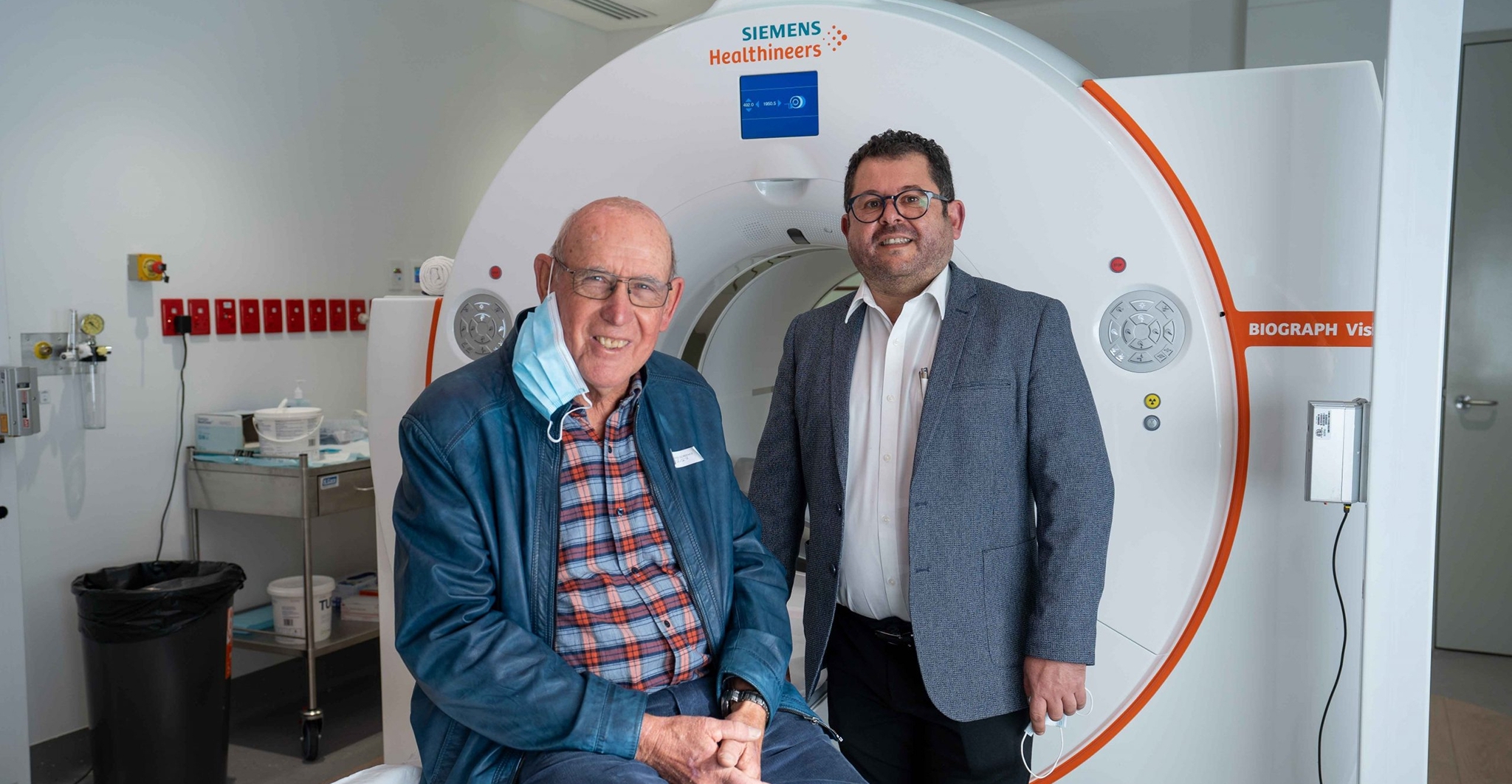Perth, AUSTRALIA – Western Australian cancer patients now have increased access to diagnostics, clinical trials, and novel new therapies, thanks to the opening of a state-first Nuclear Medicine Centre of Excellence in Perth.
The facility offers cancer patients access to ground-breaking theranostics and nuclear medicine services and is home to the latest molecular imaging equipment, including a digital PET CT scanner, the first of its kind in Western Australia.
The nuclear medicine and research hub is part of St John of God Murdoch Hospital’s $17 million new integrated cancer centre which first opened its doors to patients in December 2021. The centre is the result of a partnership between GenesisCare, Australia’s largest provider of integrated cancer care, and Centuria Healthcare, St John of God Murdoch Hospital, and SKG Radiology.
GenesisCare Nuclear Medicine Physician Professor Nat Lenzo, said the theranostics and research hub is important for patients with a range of cancers.
“Our new facility will offer patients access to treatment advancements in theranostics and a full suite of diagnostics services. We will also have a strong focus on accelerating research and development into novel therapies.”
Theranostics is a personalised treatment combining diagnostics and therapies to detect and treat a range of cancers.
The diagnostic approach utilises PET scan imaging (a special type of scan) to see if specific targets, known as tumour receptors, are present on tumour cells. If these targets are present and visible on the scan, a radioactive drug is injected into the body, selectively targeting the tumour cells, while avoiding surrounding healthy tissue.
SKG Radiology Radiologist, Dr Sue Ulreich, said the “revolutionary new digital PET scanner is heralding a new era for precision medicine in oncology in Western Australia.
“Our high-performance advanced molecular imaging system gives clinicians the confidence to diagnose and treat earlier, and will improve the detectability and identification of smaller lesions.”
In addition to theranostics and diagnostics services, the new integrated centre at St John of God Hospital Murdoch will provide appropriate patients with access to the latest treatment techniques and advancements in radiation therapy. The centre is also home to an Elekta Unity MR-Linac, a state-first technology that allows radiation oncologists to visualise cancerous tissue during treatment, combining MRI diagnostics with highly targeted radiation therapy.
St John of God Murdoch Hospital Chief Executive Officer, Ben Edwards, said the new integrated cancer service and theranostics research hub will be closely integrated into the broader health campus.
“Our medical oncologists and staff, who already work closely with GenesisCare’s nuclear medicine physicians and radiation oncologists, will work even more collaboratively to ensure patients receive comprehensive, integrated and coordinated care.”
Perth, AUSTRALIA – Western Australian cancer patients now have increased access to diagnostics, clinical trials, and novel new therapies, thanks to the opening of a state-first Nuclear Medicine Centre of Excellence in Perth.
The facility offers cancer patients access to ground-breaking theranostics and nuclear medicine services and is home to the latest molecular imaging equipment, including a digital PET CT scanner, the first of its kind in Western Australia.
The nuclear medicine and research hub is part of St John of God Murdoch Hospital’s $17 million new integrated cancer centre which first opened its doors to patients in December 2021. The centre is the result of a partnership between GenesisCare, Australia’s largest provider of integrated cancer care, and Centuria Healthcare, St John of God Murdoch Hospital, and SKG Radiology.
GenesisCare Nuclear Medicine Physician Professor Nat Lenzo, said the theranostics and research hub is important for patients with a range of cancers.
“Our new facility will offer patients access to treatment advancements in theranostics and a full suite of diagnostics services. We will also have a strong focus on accelerating research and development into novel therapies.”
Theranostics is a personalised treatment combining diagnostics and therapies to detect and treat a range of cancers.
The diagnostic approach utilises PET scan imaging (a special type of scan) to see if specific targets, known as tumour receptors, are present on tumour cells. If these targets are present and visible on the scan, a radioactive drug is injected into the body, selectively targeting the tumour cells, while avoiding surrounding healthy tissue.
SKG Radiology Radiologist, Dr Sue Ulreich, said the “revolutionary new digital PET scanner is heralding a new era for precision medicine in oncology in Western Australia.
“Our high-performance advanced molecular imaging system gives clinicians the confidence to diagnose and treat earlier, and will improve the detectability and identification of smaller lesions.”
In addition to theranostics and diagnostics services, the new integrated centre at St John of God Hospital Murdoch will provide appropriate patients with access to the latest treatment techniques and advancements in radiation therapy. The centre is also home to an Elekta Unity MR-Linac, a state-first technology that allows radiation oncologists to visualise cancerous tissue during treatment, combining MRI diagnostics with highly targeted radiation therapy.
St John of God Murdoch Hospital Chief Executive Officer, Ben Edwards, said the new integrated cancer service and theranostics research hub will be closely integrated into the broader health campus.
“Our medical oncologists and staff, who already work closely with GenesisCare’s nuclear medicine physicians and radiation oncologists, will work even more collaboratively to ensure patients receive comprehensive, integrated and coordinated care.”



